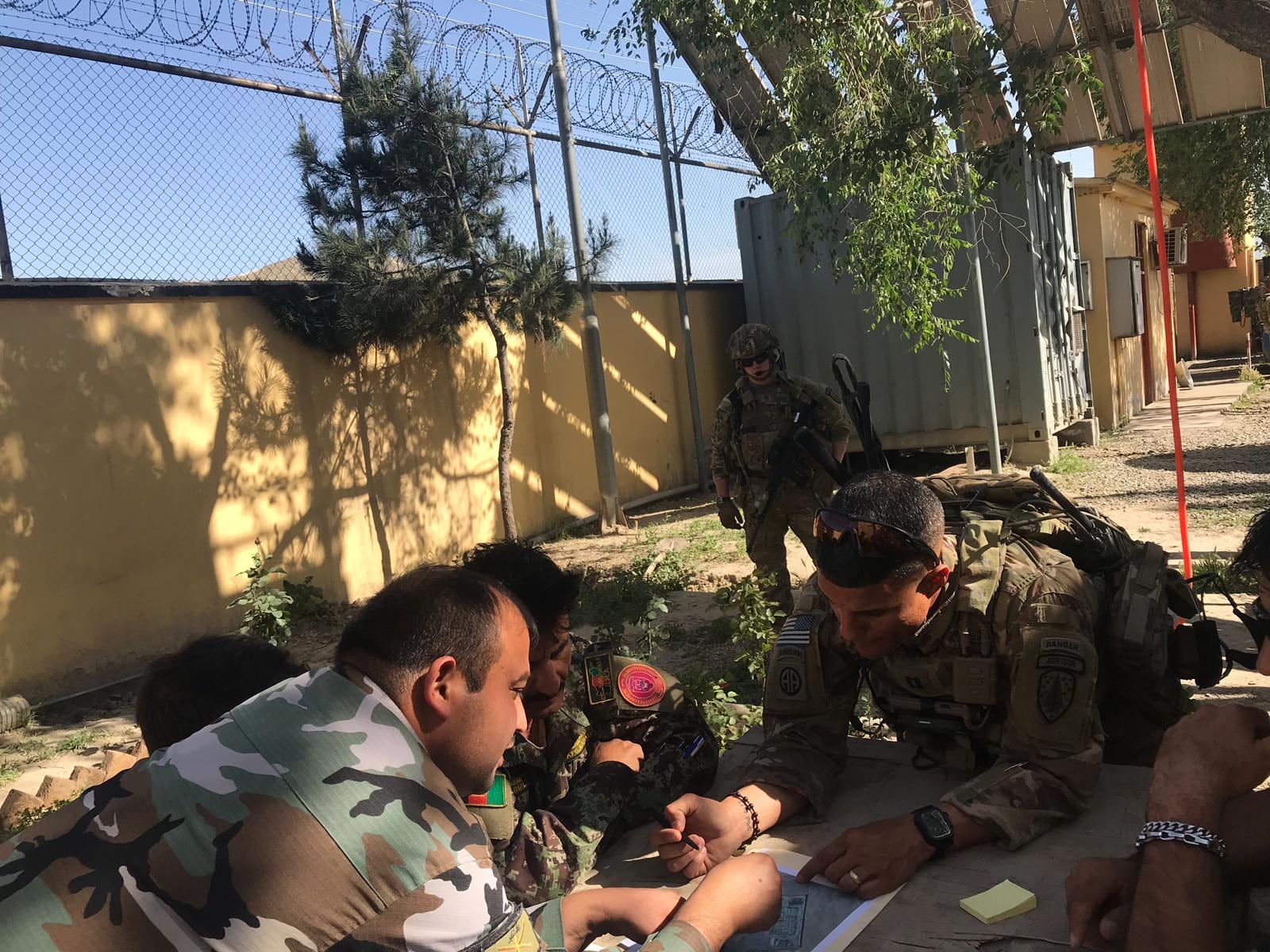Given how Army leadership has talked about talent management and people first in recent years, one would think administrative failures would be easier to resolve. But one failure has continued to hurt my otherwise clean path to promotion to major.
I am currently stationed at Fort Carson, Colorado, and have received over $5 million-worth of specialized training over 17 years of service. But I am caught in a trap that snagged about 100,000 others: I participated in a National Guard recruiting program more than 15 years ago that the Army sanctioned and promoted — and then decided that participating in was a crime.
The investigation’s failures received national attention in the past. Participating in the Guard Recruiting Assistance Program, or G-RAP, wasn’t a crime. But simply being investigated as though it was a crime has ruined lives and careers. This is what is currently happening to myself, a combat veteran and former aide de camp to a two-star general.
From 2005 until 2009, I served as an enlisted soldier in the Kentucky Army National Guard. In 2007, I participated in G-RAP, which paid existing soldiers to help recruit during the early years of the Global War on Terror. Although the Army sanctioned this program, they announced that there was massive fraud involved in it and declared an intention to investigate all 100,000 soldiers who had earned money through G-RAP.
The Army’s investigation into G-RAP was flawed. One expectation was that the recruit would remember the name of the first person they talked to in the recruiting process eight or so years after the fact.

Army agents conducted their investigations by phone, using a form that provided a checklist of possible crimes. When they called a former recruit, the agents would ask the name of their G-RAP recruiting assistant. If the recruit could not summon that name, the agent assumed that this was because the recruiting assistant didn’t actually bring in that recruit.
Titling and numerous indictments resulted from this investigation. Although I was not indicted, the investigation report claimed that I had broken rules and therefore could have committed a crime, and so I was titled.
The Army standard for titling is if “credible information” exists that a person may have committed a criminal act. The substance and protocols of the G-RAP investigations essentially guaranteed a titling outcome, which is hard to undue. Current Army regulations only permit “untitling” in the case of mistaken identity.
Army auditors did find some cases of fraud. But an article published by CBS News quoted Lt. Gen. Gary Cheek, director of the Army staff, the National Guard, as saying: “We had a program with the best of intentions, but unfortunately it was poorly designed. We left ourselves vulnerable to fraud.”
RELATED
The Army’s G-RAP Fiasco
G-RAP was poorly designed indeed. One of the people who initiated it, Lt. Gen. Clyde A Vaughn, even received a letter of reprimand. But for lower ranking soldiers like myself, the problem has been worse. When a soldier comes up for promotion or advanced security clearance, or if that person even applies for a civilian job, the titling action halts all progress. This is the situation I encountered.
I have proudly served our country. I deployed overseas with multiple units, including with the 3rd Brigade, 82nd Airborne Division, to Baghdad; and was assigned to 2nd Security Force Assistance Brigade as an adviser team leader in Afghanistan. I completed the Ranger School, Jump Master Course, Cavalry Leaders Course and Combat Advisor Training Course, in addition to obtaining numerous awards and commendations, including a Meritorious Service Medal in 2018 and a Bronze Star Medal in 2019.
I have no previous or current discipline or legal issues of any sort in my military career or personal life. I have been passionate about my Army career since first joining active duty in 2010 and take great pride in wearing the uniform. I only want to continue to serve as a leader.
As part of my pending promotion to major, I included eight letters of support that demonstrated my loyalty and skills, including recommendations from a lieutenant general and a brigadier general. But the Army said, “no.” My promotion was delayed for so many years due to administrative failures and inaction on clearing my name from the G-RAP investigation.
My case is being taken up by the Warrior Defense Project at St. Mary’s University School of Law; they are reaching out to Congress for assistance. But for now, my career is essentially over.
In dollars and cents, the taxpayers spent $5 million training me. Then they spent close to $1 million investigating me over the few thousand dollars I legally earned through G-RAP. Does that make sense? What about the human costs?
The Army’s stated philosophy is that people come first. But the indifference of a bureaucratic injustice is ruining my career, even though I was never charged or convicted.
Army Capt. Gilberto De Leon is a married father of six stationed at Fort Carson, Colorado. Gilberto is a prior enlisted soldier who is originally from Puerto Rico and has served for 17 years. Gilberto is currently pursuing his Masters from the University of Denver.
This article is an Op-Ed and as such, the opinions expressed are those of the authors. If you would like to respond, or have an editorial of your own you would like to submit, please email Military Times editor Kyle Rempfer.
Want more perspectives like this sent straight to you? Subscribe to get our Commentary & Opinion newsletter once a week.





